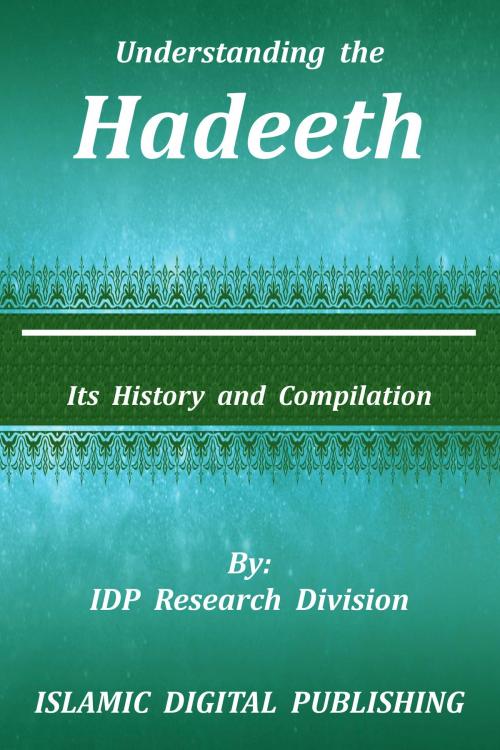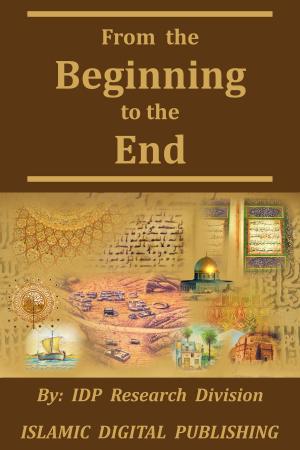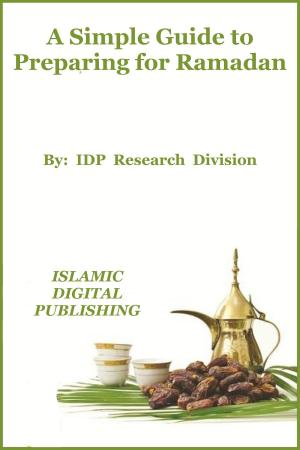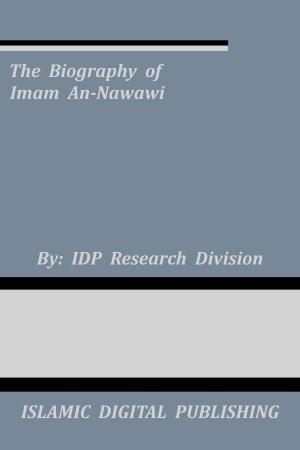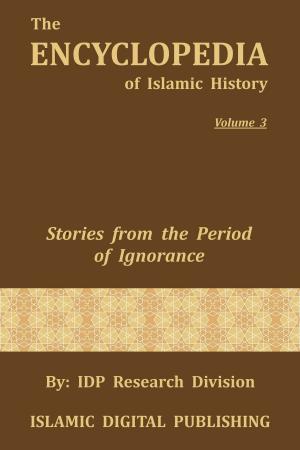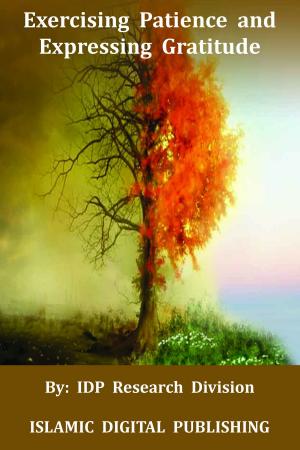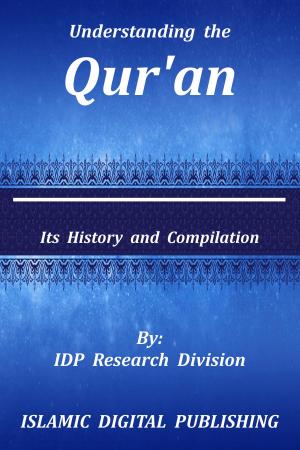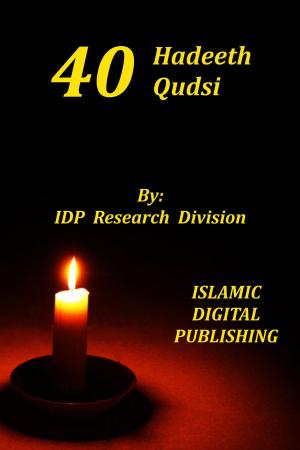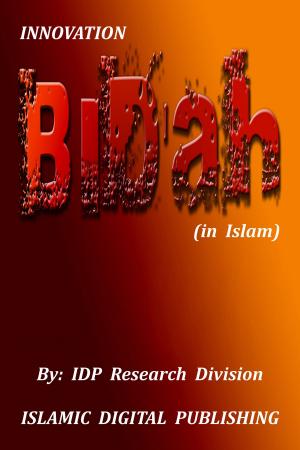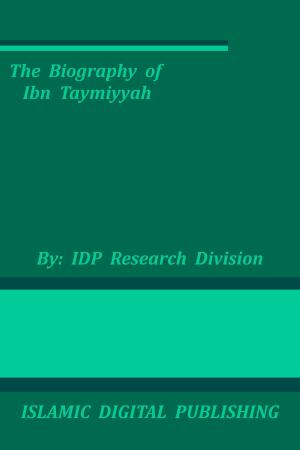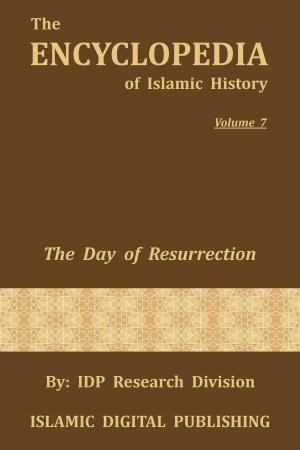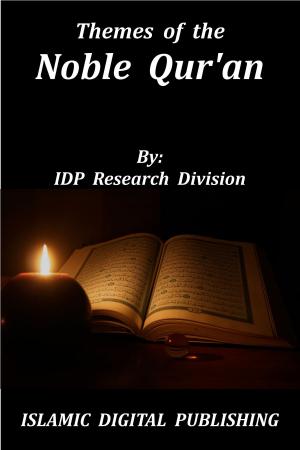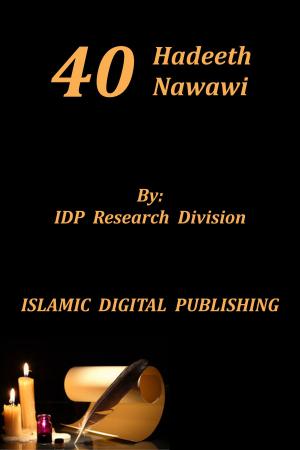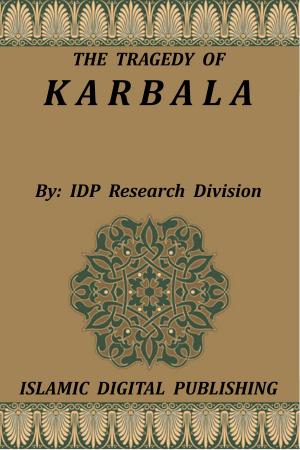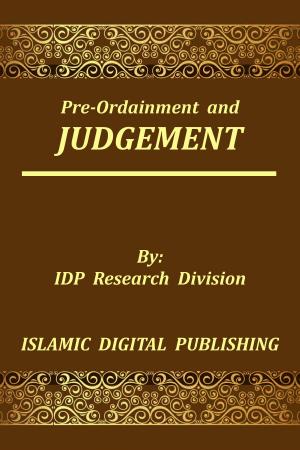Understanding the Hadeeth (Its History and Compilation)
Nonfiction, Religion & Spirituality, Middle East Religions, Koran, Islam| Author: | IDP Research Division | ISBN: | 9781370379576 |
| Publisher: | IDP Research Division | Publication: | April 3, 2017 |
| Imprint: | Smashwords Edition | Language: | English |
| Author: | IDP Research Division |
| ISBN: | 9781370379576 |
| Publisher: | IDP Research Division |
| Publication: | April 3, 2017 |
| Imprint: | Smashwords Edition |
| Language: | English |
The Muslims agree that the Sunnah of the Prophet Muhammad (S) is the second of the two revealed fundamental sources of Islam, after the Glorious Qur'an. The authentic Sunnah is contained within the vast body of Hadeeth literature.
Unfortunately however, statements will continue to be attributed to the Prophet (S) although the person quoting them may have no idea what the people of knowledge of Hadeeth have ruled regarding those Ahadeeth, thus ironically being in danger of contravening the Prophet's widely-narrated stern warnings about attributing incorrect/unsound statements to him.
Similarly, just as Allah preserved the Qur'an, he preserved the Sunnah by enabling the Companions and those after them (may Allah be pleased with them) to memorise, write down and pass on the statements of the Messenger (S) and the descriptions of his Way, as well as to continue the blessings of practising the Sunnah. Later, as the purity of the knowledge of the Sunnah became threatened, Allah caused the Muslim nation to produce outstanding individuals of incredible memory-skills and analytical expertise, who journeyed tirelessly to collect hundreds of thousands of narrations and distinguish the true words of precious wisdom of their Messenger (S) from those corrupted by weak memories, from forgeries by unscrupulous liars, and from the statements of the enormous number of 'ulama', the Companions and those who followed their way, who had taught in various centres of learning and helped to transmit the legacy of Muhammad (S) - all of this achieved through precise attention to the words narrated and detailed familiarity with the biographies of the thousands of reporters of Hadeeth. Action being the best way to preserve teachings, the renewers of Islam also revived the practice of the blessed authentic Sunnah.
The methodology of the expert scholars of Hadeeth in assessing such narrations and sorting out the genuine from the mistaken/fabricated etc., forms the subject-matter of a wealth of material left to us by the muhaddithun (scholars of Hadeeth, "traditionists"). This short treatise is a humble effort to introduce this extremely wide subject to English readers. Great benefit has been derived from the outstanding scholarly work in this field, Muqaddimah Ibn al-Salah.
The Muslims agree that the Sunnah of the Prophet Muhammad (S) is the second of the two revealed fundamental sources of Islam, after the Glorious Qur'an. The authentic Sunnah is contained within the vast body of Hadeeth literature.
Unfortunately however, statements will continue to be attributed to the Prophet (S) although the person quoting them may have no idea what the people of knowledge of Hadeeth have ruled regarding those Ahadeeth, thus ironically being in danger of contravening the Prophet's widely-narrated stern warnings about attributing incorrect/unsound statements to him.
Similarly, just as Allah preserved the Qur'an, he preserved the Sunnah by enabling the Companions and those after them (may Allah be pleased with them) to memorise, write down and pass on the statements of the Messenger (S) and the descriptions of his Way, as well as to continue the blessings of practising the Sunnah. Later, as the purity of the knowledge of the Sunnah became threatened, Allah caused the Muslim nation to produce outstanding individuals of incredible memory-skills and analytical expertise, who journeyed tirelessly to collect hundreds of thousands of narrations and distinguish the true words of precious wisdom of their Messenger (S) from those corrupted by weak memories, from forgeries by unscrupulous liars, and from the statements of the enormous number of 'ulama', the Companions and those who followed their way, who had taught in various centres of learning and helped to transmit the legacy of Muhammad (S) - all of this achieved through precise attention to the words narrated and detailed familiarity with the biographies of the thousands of reporters of Hadeeth. Action being the best way to preserve teachings, the renewers of Islam also revived the practice of the blessed authentic Sunnah.
The methodology of the expert scholars of Hadeeth in assessing such narrations and sorting out the genuine from the mistaken/fabricated etc., forms the subject-matter of a wealth of material left to us by the muhaddithun (scholars of Hadeeth, "traditionists"). This short treatise is a humble effort to introduce this extremely wide subject to English readers. Great benefit has been derived from the outstanding scholarly work in this field, Muqaddimah Ibn al-Salah.
